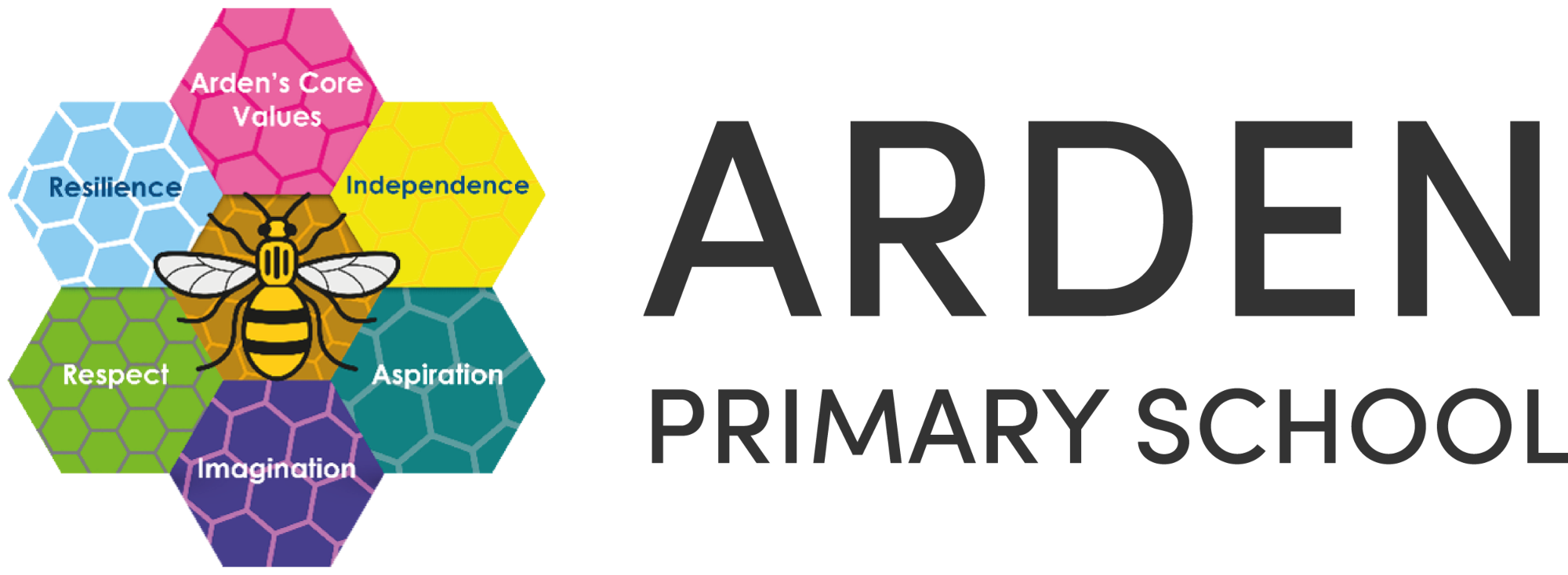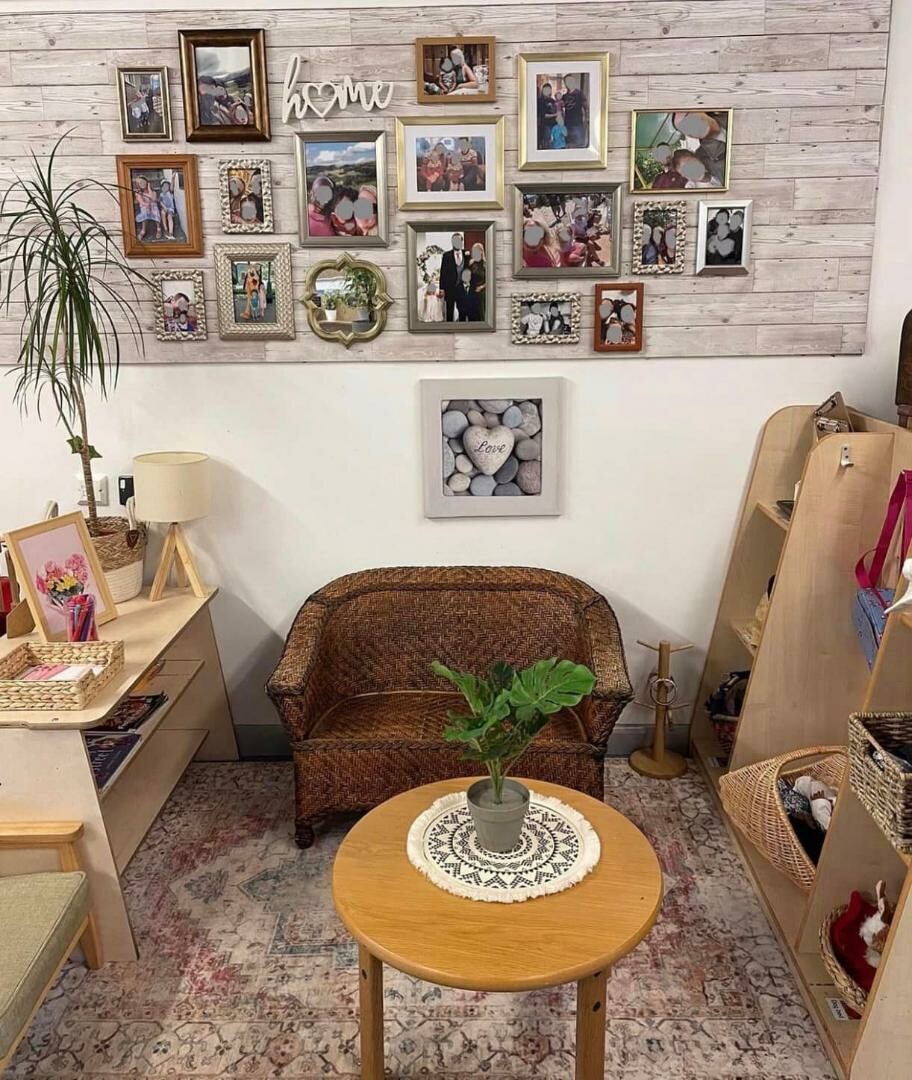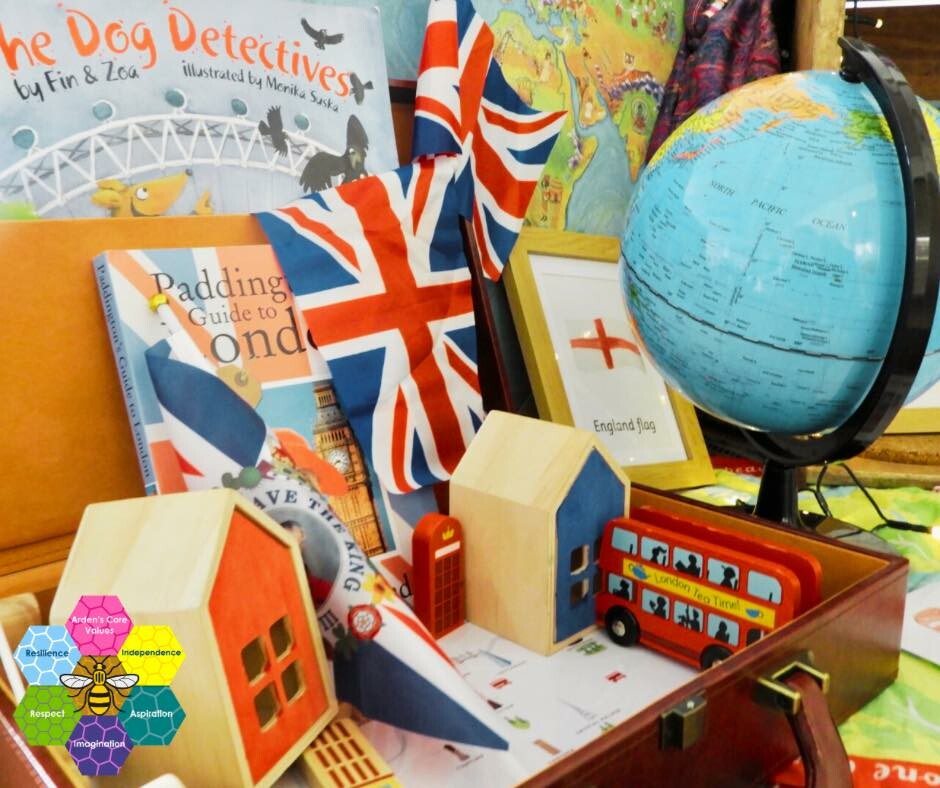EYFS Curriculum
INTENT
The EYFS curriculum is designed to encourage independent, imaginative, resilient and aspirational learners. We provide our children with a curriculum that is designed to be flexible, engaging and exciting so that their unique needs, passions and interests are embraced. We work closely with our local nurseries to recognise children's prior learning and various starting points, and create a holistic curriculum that maximises cross-curricular links and builds strong foundations for their future. Our EYFS curriculum is the cultural capital we know our children need so that they can gain the knowledge, skills and understanding they require for success. It is specifically designed and evolves to provide children with important foundational skills and knowledge that prepares them with the skills and knowledge to further their education in Year 1.
Every child is recognised as a unique individual. We celebrate the diversity in our school community and acknowledge and promote children's curiosity and interests to provide them with the opportunities to follow their imagination and creativity. In the EYFS, we invest time into helping children to recognise their personal goals, which allows them to reflect and aim high. We promote passionate inquisitive learners and provide them with opportunities to engage their inquisitive minds by planning and developing high quality continuous indoor and outdoor provision that is resourced well to follow children's interests and support learners in investigating and developing their skills and promote the development of the characteristics of effective learning. We work hard to develop close partnerships with parents and carers throughout the year promoting a holistic approach to supporting children to reach their full potential.
IMPLEMENTATION
Pupils learn through a balance of child-initiated and adult-directed activities and challenges. The weekly timetables are carefully structured so that children have quality first teaching in English, Mathematics and Phonics every day. We also ensure regular Circle Time/ PSHE sessions to focus on C&L and PSED and Topic sessions to focus UW and EAD. These sessions are followed by group work where children work with a member of staff to develop their individual targets. This focused group time enables the teacher to systematically check for understanding, identify and respond to misconceptions quickly and provide real-time verbal feedback which results in a strong impact on the acquisition of new learning.
Children in EYFS learn by playing and exploring, being active, and through creative and critical thinking which takes place both through our excellent indoor and outdoor environments. Our curriculum in the EYFS is themed in half termly engaging topics to support the progressive development in knowledge and skills. Children are provided with a wide variety of opportunities to engage in 'exploration' throughout a variety of experiences, which are carefully planned to engage and challenge them in the provision. Our effective continuous provision practise and principles support our children to develop key life skills such as independence, innovation, creativity, enquiry, analysis and problem solving. Additional adults support learning and progress through modelling and questioning to ensure knowledge and skills are embedded and developed. Children's interests are taken into consideration with activities planned to promote engagement and personalised learning.
Reading, language and vocabulary development are at the heart of our curriculum. Our themed topics support the children with the acquisition of carefully planned language and the principals of effective provision support the children in knowing and remembering more as they communicate with adults and their peers.
Children follow an engaging synthetic systematic phonics programme called 'Rocket Phonics' to support them in meeting good outcomes for reading and communication and language. Children also enjoy reading a variety of books inside and outside of school through quality guided reading sessions and independent reading with adults. Children are sent home with a fully decodable phonics reading book that is tailored and suited to their individual phonics level and a library book to promote reading for pleasure. A rigorous and sequential approach to the reading curriculum such as Rocket Phonics develops pupils' fluency, confidence and enjoyment in reading. It is aspirational as it develops vocabulary with the use of teacher books to contextualise vocabulary and the teaching of phonics. At all stages throughout the delivery of the programme, children's reading attainment is assessed and gaps are addressed quickly and effectively. Staff are trained and monitored regularly to ensure a consistency and fidelity to the approach.
In English, we follow 'Read to Write'. This approach to teaching of writing further promotes vocabulary development and lifelong literacy skills. The principals of the approach support the foundations of communication and language through a focus on oracy and the development of language. Using high quality texts and personalised example texts, children develop their reading and writing skills. The scheme is tailored to mirror the children's learning in phonics to support the consolidation of blending and segmenting skills.
We follow the 'White Rose' Maths Mastery approach in Reception with an emphasis on studying key skills of number, calculation and shape so that pupils develop deep understanding and the acquisition of Mathematical language. Pupils learn through games and tasks using concrete manipulatives which are then rehearsed and applied to their own learning during exploration and in adult directed activities. These collaborative and practical mathematical experiences are carefully designed to help pupils remember the content they have been taught and to support them with integrating their new knowledge across the breadth of their experiences and into larger concepts. Teaching Mathematics in such a kinaesthetic and practical way supports our children to become logical problem solvers that can demonstrate resilience and justification when learning. This approach to teaching Maths ensures children gain progressive mathematical knowledge and skills as they continue their journey through KS1.
Our inclusive approach means that all children learn together, however we also use a range of additional interventions to support, enhance and scaffold children who may not be reaching their potential or to help move on children who are having difficulties making progress. Some examples of this include, WellComm and Language Links to support the understanding of language and Speech Links to support language development. The 'Squiggle' programme is used to promote physical development, promoting both gross and fine motor skills. There is also additional targeted provision in Maths, Phonics and Physical Development to promote fine motor skills. The characteristics of effective learning are viewed as an integral part of all areas of learning and are reflected in our observations and assessments of children.
Working in partnership with our parents is an integral and important part of the relationship we build within our school community. We regularly invite parents into school for workshops, celebration events and progress meetings. We communicate with parents weekly using Tapestry, an online journal. Weekly updates on learning are posted along with suggested home learning activities and opportunities. Parents value the feedback and positively engage to support the learning of the children.
Class teachers record ongoing individual observations and photographs of children's learning and play and interests. These observations are used to support teachers make to informative assessments and inform potential next steps for each child, this includes careful consideration of children with SEND or are who are disadvantaged. Formal assessments are recorded using tracking linked to the Early Learning Goals. These summative assessments are completed termly to judge each child's progress in the 7 areas of learning. Their progress against the Development Matters age related expectations is monitored. This allows us to assess the impact of our teaching and decide if sufficient intervention measures are needed to help specific children. This is reported to members of the SLT during pupil progress meetings.
Our regular monitoring of teaching and learning includes: coaching, lesson observations and constructive feedback from the Early Years lead. The Early Years lead and teaching staff receive relevant up to date training and keep up to date with important Government/Ofsted focuses and initiatives. We are also highly focused on frequently moderating outcomes across the year group so that every member of our team feels confident in making accurate judgements about where individual pupils are and what their next steps are.
IMPACT
The impact of the EYFS curriculum is reflected in having well rounded, happy and confident children transitioning into Year 1.
We measure progress and children's learning across the year through formative and summative assessment which are based on the teacher's knowledge of the child, the observations made and the recorded discussions during pupil progress meetings and moderation meetings. We aim to exceed the National and Local Authority data for children achieving Good Level of Development. Most of our children make more than the expected steps progress from their starting points.
The judgements of our school are moderated with other schools and the EYFS Lead is also a KS1 moderator. This supports us in providing clear, consistent and linear progression of knowledge and skills for children as they progress through to KS1.
The Early Years provision features in the school Management Action Plan and has a rigorous plan for development each year. This is monitored and evaluated frequently by the SLT.


